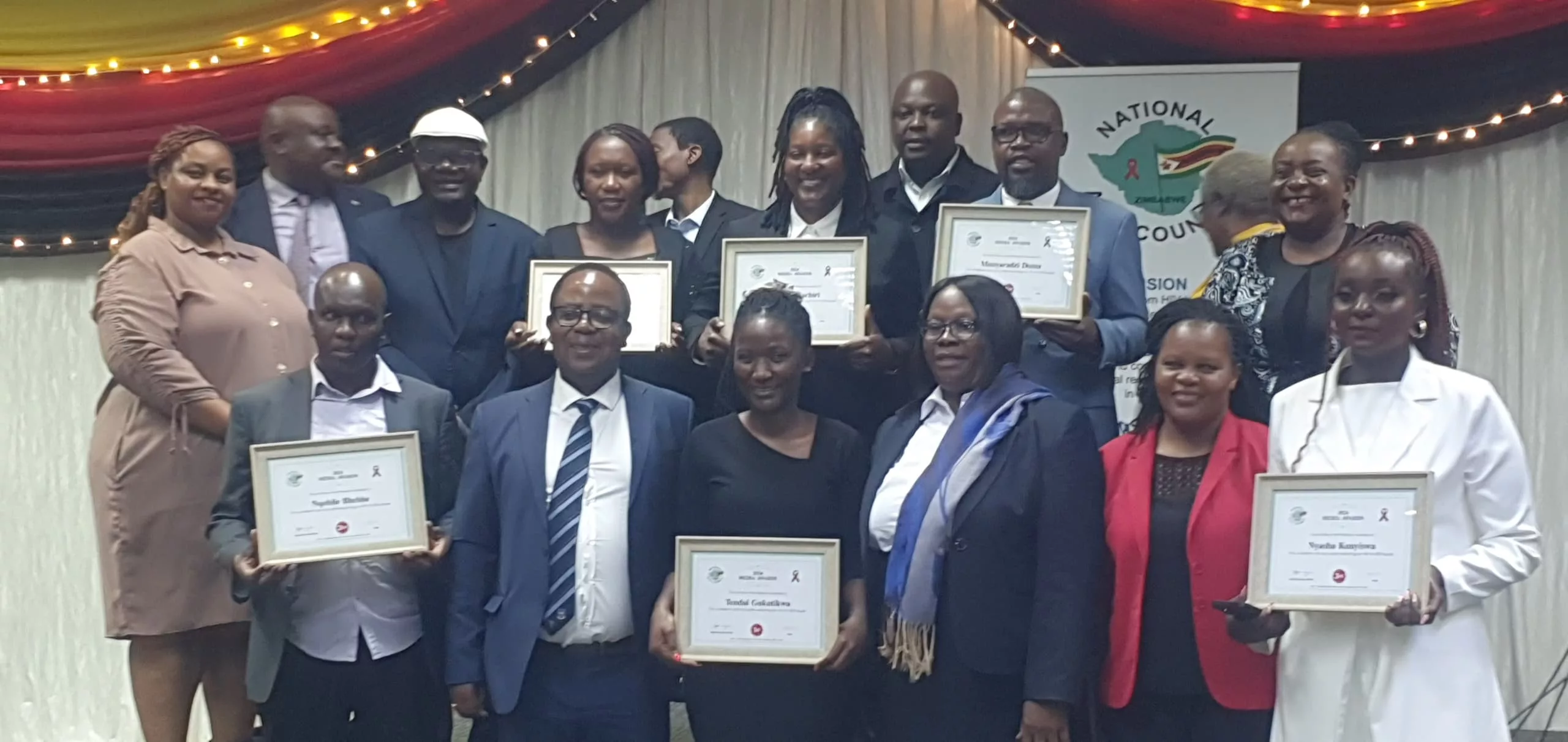The National AIDS Council (NAC) continued with its practice of honouring excellence in media coverage of the HIV national response by awarding outstanding journalists at a colourful ceremony held at the Cresta Lodge in Harare yesterday.
In her address on behalf of Hon Douglas Mombeshora, the Minister of Health and Child Care, Nester Mukwehwa, the Executive Director of the Employers Confederation of Zimbabwe (EMCOZ), who is the NAC Board Chairperson, reiterated the importance of celebrating the indispensable role that the media plays in the national response to HIV and AIDS.
“HIV is a major risk factor for several other diseases including TB and various non-communicable diseases. This calls for an integrated response that is hinged on universal health coverage. This is where the power of media becomes truly paramount. You, our media partners, are the crucial link between information and the public. Your pens, your cameras, and your voices have the power to shape perceptions, dispel myths, and influence change.
“Through your reporting, you have amplified the voices of those affected by HIV, humanized their experience, and challenged the stigma and discrimination. You have educated the public on prevention. You have encouraged the public to take action. You have supported the prevention methods, the importance of testing, and the benefits of treatment adherence. You have held us accountable and ensured that the national response remains a priority. The stories you have shared have inspired hope, encouraged dialogue, and empowered individuals to take control of their health,” Mukwehwa said.
Zimbabwe has made significant strides, demonstrating unwavering commitment and resilience in tackling HIV. We have witnessed a decline in new infections; increased access to life-saving anti-retroviral therapy and a reduction in AIDS-related deaths which are embodied in the achievement of the 95-95-95 global targets. These achievements are a testament to the collective effort of the government, development partners, civil society organizations, health care workers, and indeed every Zimbabwean.
Despite the achievements, Mukwehwa said stakeholders cannot afford to be complacent since the response to HIV and AIDS is far from over. She urged stakeholders to remain vigilant, innovative and united in their efforts to achieve the national goals and contribute to the global vision of ending the epidemic as a public health threat by 2030.
She added that the media plays a critical role in creating an enabling environment where people living with HIV can live with dignity and without fear of judgment.
“Today’s awards are a recognition of this invaluable contribution. We celebrate the journalists who have made this possible – editors, photographers, and media houses who have demonstrated exceptional dedication, professionalism, and sensitivity in their coverage of HIV and AIDS. Your commitment to accuracy, ethical reporting, and impactful storytelling is truly commendable. I want to express my sincere appreciation to the National AIDS Council for organising these awards and for their continued leadership in coordinating the national response.”
Farisai Chaniwa, the team leader of the adjudicators, praised the increase in HIV-related stories, indicating a high degree of assurance and enthusiasm about the prizes.
The adjudicators also recommended that a training program be established where seasoned journalists mentor upcoming reporters with progress checks on regular intervals.
Dr Bernard Madzima, the Chief Executive Officer of the National AIDS Council said they deeply value the partnerships with stakeholders including the media.
“Besides these awards, we also do media tours and workshops. And these have created an excitement over the years. Your role cannot be overemphasized. It’s instrumental and plays an amplifying role in those affected by HIV. So your stories inspire change, hold leaders accountable, and bring hope to communities across the nation.
“So today in this room, colleagues, we want to celebrate the outstanding achievements of individuals, and media houses that have demonstrated commitment to HIV and AIDS. As we move forward, let us continue to collaborate, innovate, and amplify our voices in the communities. Let us use the media to affect positively and empower our nation,” Dr Madzima said.
Communities that are reported on also benefit from the stories. A young lady called Cecilia from Karoi had good passes at the Advanced Level but could not proceed to college or university due to financial challenges. When Health Times carried her story, a well-wisher pledged to sponsor her by paying tuition for her university studies and catering to other needs like food, and accommodation.
Among the winners were Dorcas Mufiri from the electronic category; Munyaradzi Doma, and Brenna Matendere from the online category; and Tendai Gukutikwa from the print category, just to mention a few.






